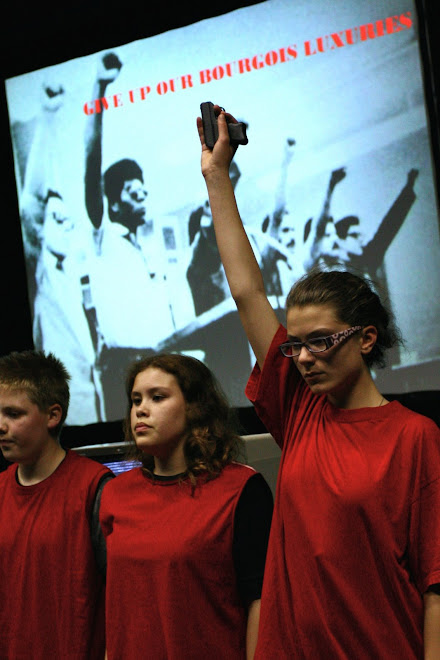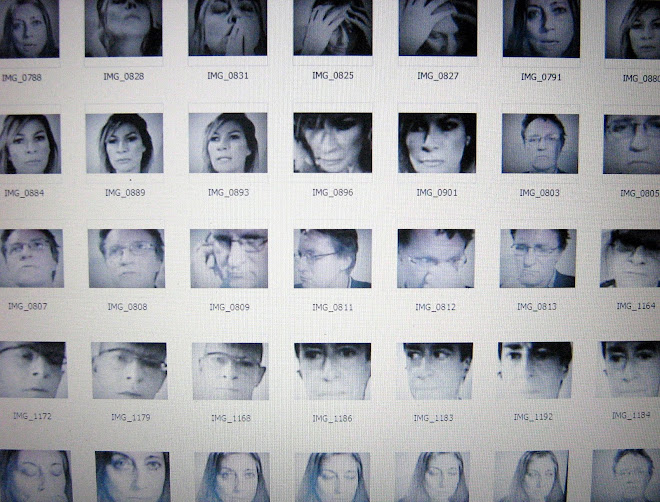Will You Ever Be Happy Again?, after its premiere in 2008, performing in different European cities and different festivals and contexts and touring a lot in the last year, finally had its German premiere at Euro-scene festival in Leipzig in November 2009. The fact that the performance opens up a space for the discussion was confirmed during the public talks following the show both evenings. They were organized by the festival, both times moderated by dr. Martina Bako, the professor of theatre science at the University of Leipzig. The most of the people took very active (and passionate!)involvement in discussions and even after the official end we continued to talk endlessly, till the early morning hours, in the festival café.
Just a couple of days before the 20-year anniversary of the Berlin wall fall we were sitting with our East German audience discussing issues of identity, recent history, it’s personal and official ’versions’, etc. What other ideal set up could I imagine when the production started? Only a week before this we were in Sarajevo, another ’ideal’ surroundings for the issues brought by Will You Ever Be Happy Again?
Most of the people we met in a certain way chose to live in Leipzig after 1989... Why? Most of them agree that it’s offering new opportunities, motives and the active, intriguing position concerning the questions of history, politics and identity in general (German, European, global...). Realizing that the moment of German reunion cannot be considered simply as a step towards a ’bright future’ was one of the triggers which opened countless very complicated but interesting questions and my personal realization that the issue of German identity is much more complicated regarding it’s recent history put me in a situation to rethink my own thoughts, not only about the performance, but about the relations in-between collective, private, official and intimate, private ‘histories’, ‘identities’, ‘stereotypes’, etc.
For example - a man from the audience said: “I am happy that my children could be proud of German identity. I am happy that it is, at some extent, untied from the burden of history and that my children do feel as Germans, which I was not allowed to do or at least I would feel shame in the moments I was trying to think about it.” Interesting enough, the question of German identity brought very different answers and opinions, in relation to different generations of people in the audience.
During the interview for the MDR TV show Artour I was asked what could be the 100% Serbian. I tried to reply with the opposite question - what could be the 100% German? Both interviewer and me left the room with unreturned questions instead of replies. Leipzig was perhaps the most obvious place in which was clear that the performance opens up only new questions more than offering answers. It was special to feel that it re-units people in trying to find the possible answers together and, my very personal opinion is that it only adds another dimension to the performance, or at least, that this layer of unanswered questions is a place for new thoughts, new dialogues, new exchanges of experience, personal or collective, intimate or, so called official. Even by making the small steps, theatre should be produced in relation to its historical and social, political and cultural context and it should try to reflect actuality and that is the theatre I am very much interested in.
Sanja Mitrović, Stichting Stand Up Tall Productions
More texts about WYEBHA? tour soon follows on: www.willyoueverbehappyagain.wordpress.com.
Subscribe to:
Post Comments (Atom)





No comments:
Post a Comment